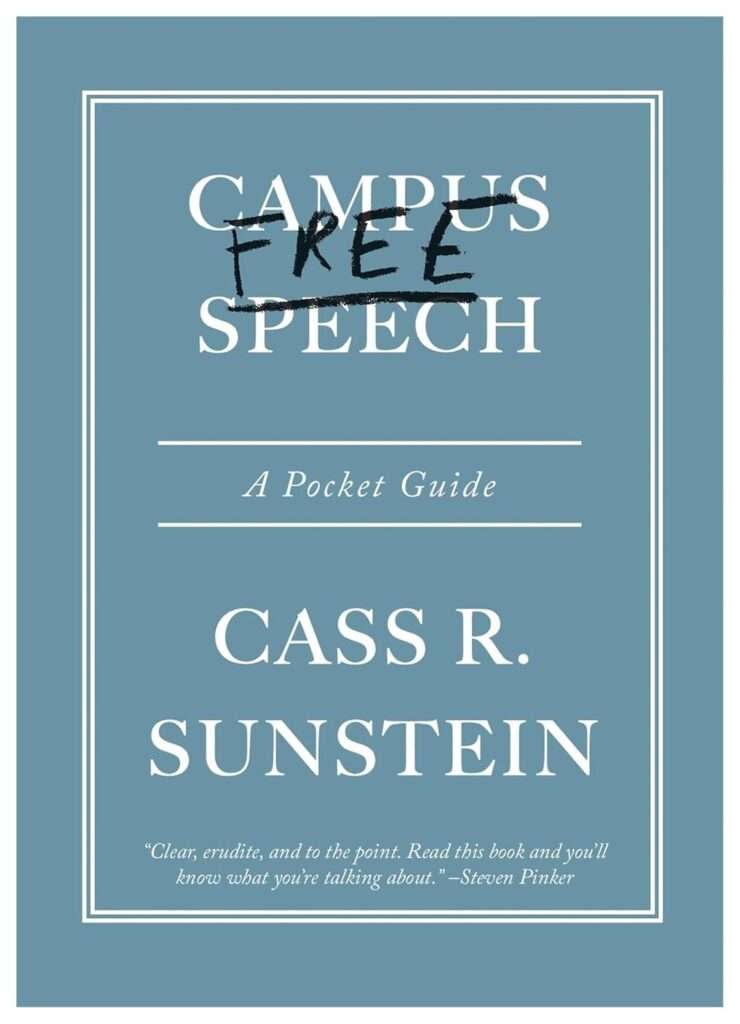
Public universities are bound by the First Amendment. Private universities are not (although states may choose to apply First Amendment requirements to private universities, as California has nearly done), but life would be much easier and much better for faculty, administrators, and students alike if private universities chose to abide by the First Amendment.
One reason is that First Amendment principles make most litigation easy.
The First Amendment does not protect plagiarism, sexual harassment, or genuine threats (such as, “If I see you in the dining room again, I’m going to hurt you.”) At the same time, the First Amendment protects a wide range of viewpoints, including those that many people would consider, or actually are, offensive, hurtful, degrading, or humiliating.
If someone on campus says things like, “Capitalism is racism,” “Israel should never have been founded,” “The Democrats are communists,” “January 6, 2021 should be a national holiday,” “Russia is the only option,” or “Affirmative action is the worst form of racism,” the First Amendment does not allow for restrictions.
Still, difficult cases abound. Many of the most difficult cases arise when universities argue that their educational mission justifies the restrictions.
In some cases, such restrictions may be truly justified: a university could tell a history professor to teach history but not physics in his history classes. This is a form of content discrimination, and is fine.
Universities can deny tenure to a law professor whose entire published work is science fiction — another form of content discrimination, but that’s okay, too — and universities can dictate to students that they must write papers and exams on specified topics, not on what interests them.
They can also go further. Universities can require that students and faculty treat each other with respect. If a student repeatedly calls other students stupid or dumb during class, disciplinary action is almost certainly warranted. If a professor repeatedly uses the F-word during class in response to disruptive or unhelpful student comments, disciplinary action is almost certainly warranted.
Governments cannot mandate civility, consideration, and respect, but higher education institutions can at least make such things clear if they are willing to deal with extreme cases.
It is easy to imagine cases where discrimination based on views that would normally be frowned upon would be tolerated, again because of the mission of education.
Suppose a law school believes that its faculty is dominated by people who hold left-of-center views, especially in constitutional law. Can the law school decide to give preference in hiring to people who hold right-of-center views?
The answer is almost certainly yes: law schools can decide that they want to ensure diversity of viewpoints for the benefit of both faculty and students without violating First Amendment principles.
But there are more difficult cases.
If a physics professor said, “Men are better at physics than women. Physics is a much easier subject for men,” and he said this in class, the university might think that the professor was not doing his job if he told female students that they would likely struggle in his physics class.
First Amendment principles do not prohibit universities from taking steps to enable professors to do their jobs. Perhaps certain types of speech in class could be restricted, even if the restriction is a form of viewpoint discrimination. (A professor would never be disciplined for saying that male and female students can excel equally in physics.)
If a professor said something like this outside of the classroom, the argument is weaker. The professor doesn’t lose the right to express his or her opinion. But there isn’t much law on such matters. (I think the law is based on the fact that the professor is not a professor.) Freedom of speech on campus.
It is well known that governments can restrict the speech of their employees when that restriction is reasonably justified by the government’s legitimate interests as an employer. If a State Department policy-making official says that the United States is a terrible country in every way, while China and Russia are both excellent and flawless, the First Amendment does not prohibit him from being suspended or fired.
So it can be tricky when a professor says something that, from the university’s rational point of view, makes it difficult for him to teach students. But the slippery slope problem here is serious: Different ideas expressed outside of class can upset some students or make them feel alienated or demoralized in some way. Consider the following: (1) “Religion is people’s opiate.” (2) “Atheists have no morals.” (3) “Liberalism is a disorder.” (4) “Hunting should be a crime.”
So far I have focused on what faculty say, but the question of whether the mission of education justifies special restrictions can also be asked of administrators and students.
If a dean of admissions produced a sexually explicit video, or if students formed a group that celebrated the Confederacy or defended Hitler, it is easy to imagine that some, or even many, on campus would argue that the relevant speech undermined the educational mission of the institution.
In my view, college is best started with the premise of freedom. But as the saying goes, general propositions do not determine specific cases. Adopting First Amendment principles makes most cases easier, but not all.







